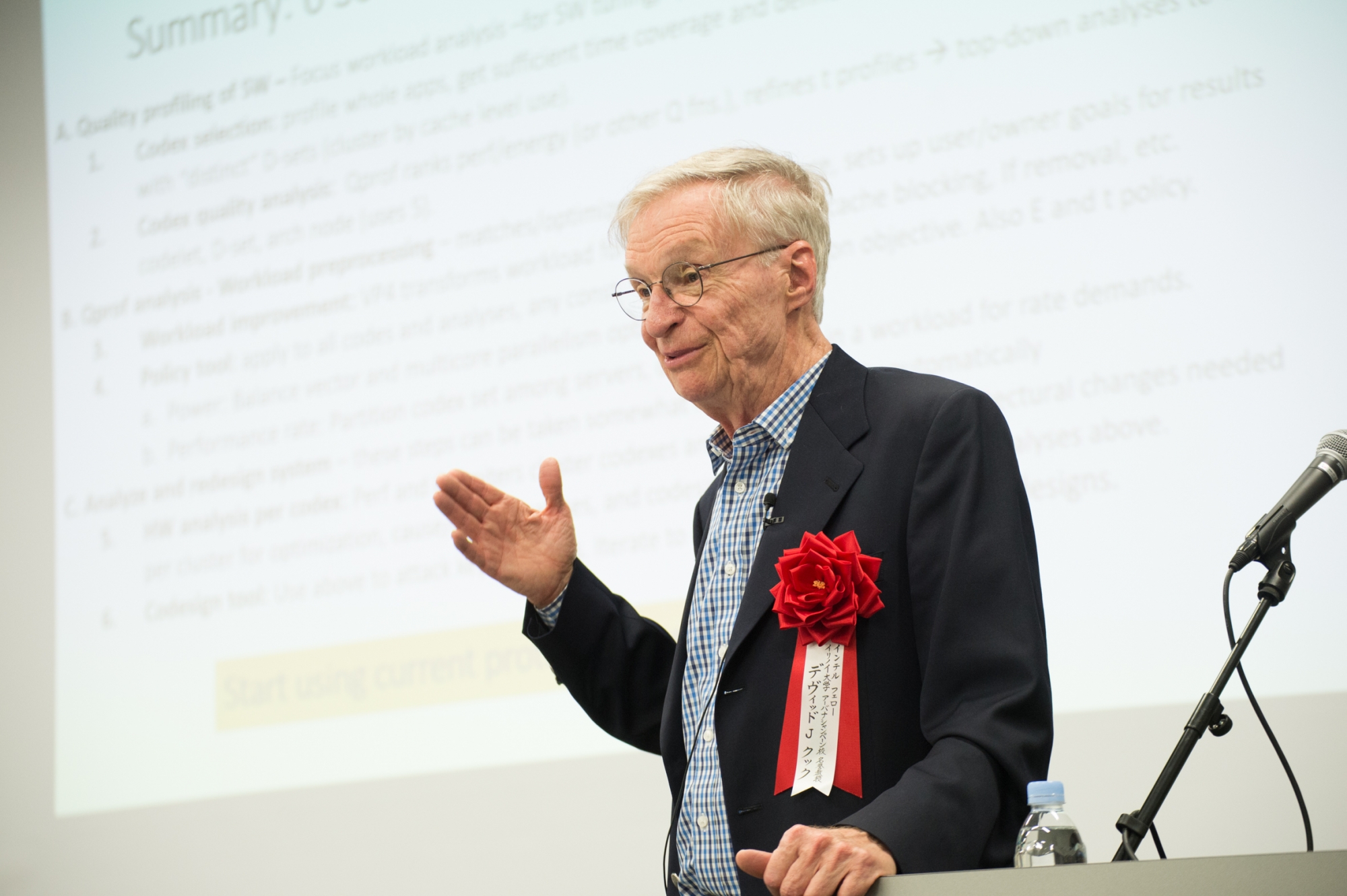Father of parallel compilers at high performance green computing international symposium
Tue, Apr 17, 2018-
Tags
The International Symposium on Future of High Performance Green Computing 2018 was held on March 8 at the Green Computing Systems Research and Development Center, inviting Dr. David Kuck, Intel Fellow and Professor Emeritus at the University of Illinois at Urbana-Champaign, as the keynote speaker. The symposium was organized by Waseda University’s Frontier of Embodiment Informatics: ICT and Robotics Unit and Advanced Multicore Processor Research Institute, and the Okawa Foundation for Information and Telecommunications.

Dr. Kuck is a pioneer in parallel programming technology, which carries out simultaneous programming of calculations or the execution of processes in parallel computation. He is also known to have developed the world’s first supercomputer, ILLIAC IV, and is now regarded as the father of parallel compilers. In recognition of his achievements, he has received the IEEE Computer Society Pioneer Award, and recently, the Okawa Prize, given to people who have made outstanding contributions to research, technological development, and business in the field of information and telecommunications.
In his presentation, Dr. Kuck focused on how software developers need more insight about their code and its hardware interactions, and addressed these topics as six tough but solvable challenges: codex selection, codex quality analysis, workload improvement, policy tools, hardware analysis per codex, and codesign tools.
Dr. Kuck continues to be an inspirational figure for those in the field, including Professor Kasahara of Waseda University, the symposium’s main organizer and the first IEEE Computer Society President from outside North America. “I read Dr. Kuck’s research papers when I was a doctoral student, and was inspired very much,” he commented.
Professor Kasahara spoke about the future of high performance multicore computing at the symposium. Multicores are expected to improve processing performance and reduce power consumption of computing systems for various applications, including self-driving automobiles, smart homes, IoT, deep learning, cancer treatment, image processing, scientific applications such as natural disaster simulation, the Square Kilometer Array radio telescope and more. “To obtain high performance and low power on multicores, co-design of hardware and software, especially parallelizing and a power reducing compiler, becomes very important,” Professor Kasahara explained. “Green multicore computing with a memory friendly accelerator will allow us to develop software in a short period with low cost, and will become a very important technology in the future.”
The symposium continued with advanced lectures and roundtable talk by Professor David Padua of the University of Illinois at Urbana-Champaign, another pioneer in the world of parallel programming and HPC; Professor Vladimir Getov of the University of Westminster, a member of IEEE Computer Society Board of Governors and expert on low power consumption computing; Peter Braam, a researcher at Cambridge University and entrepreneur focused on large-scale computing; and Professor Jae Jin Lee of Seoul National University, a leader in the field of embedded parallel computing.














